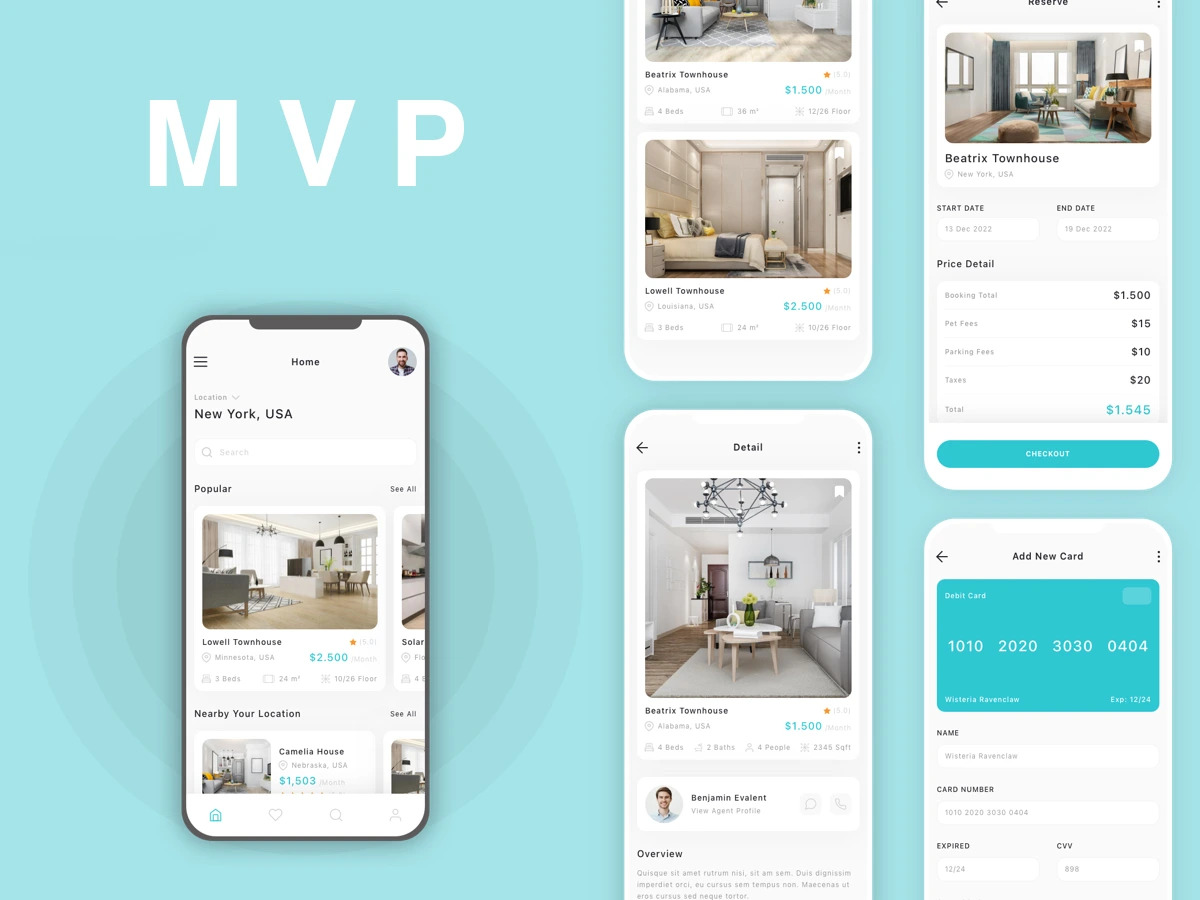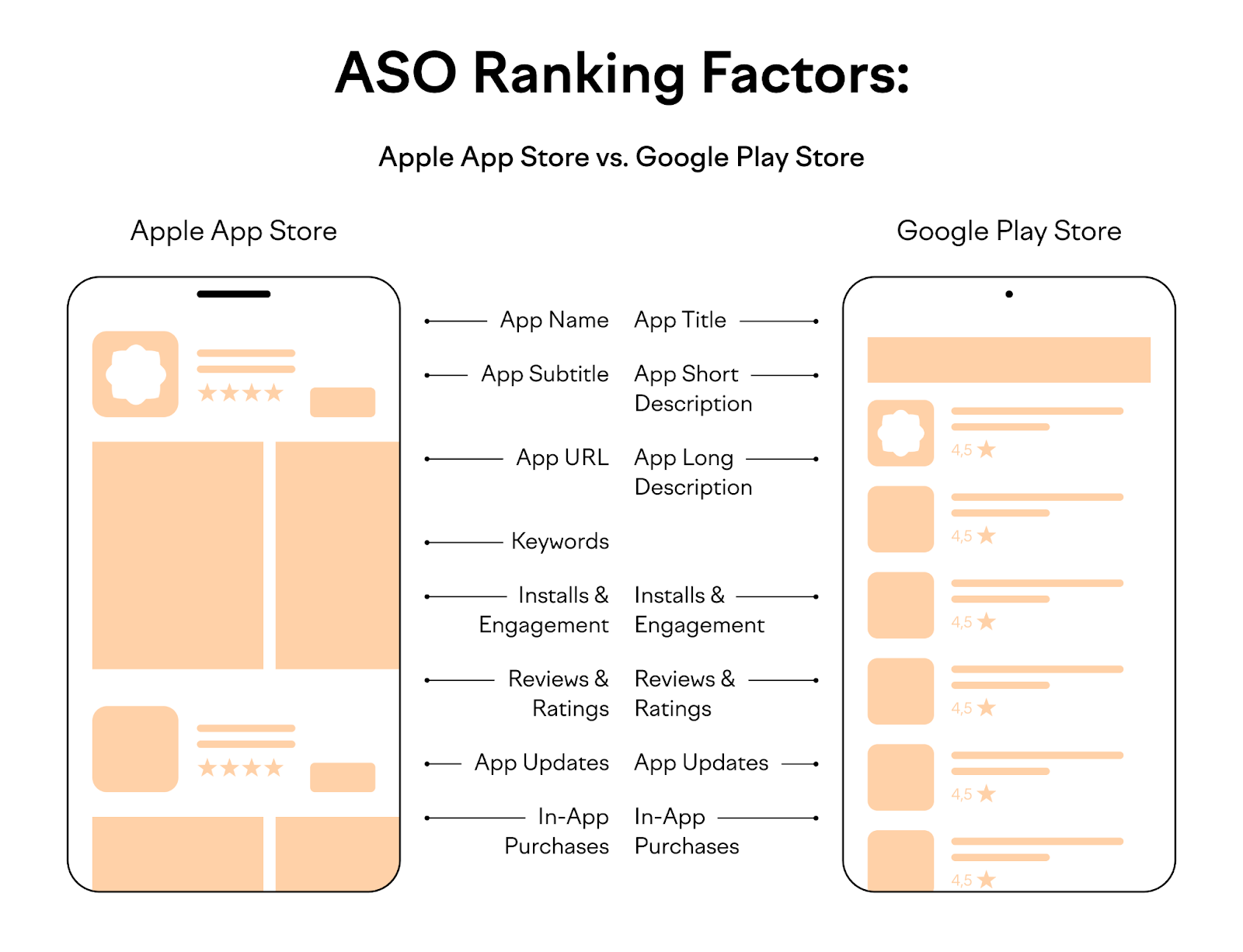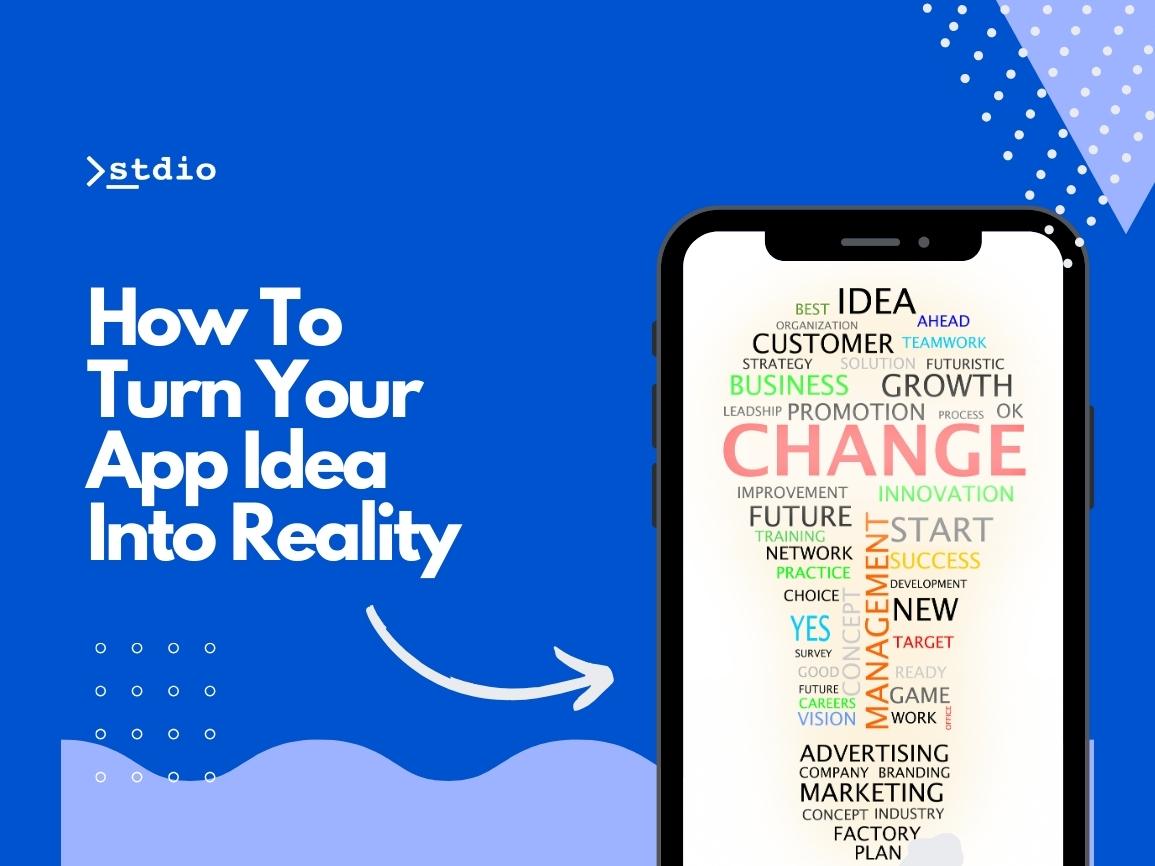Transform your app idea into reality with our proven roadmap and strategies, guiding you through the challenges that follow the initial conception. Discover more in our blog!
Imagine you’ve developed a groundbreaking concept for a business application.
First and foremost, kudos on formulating this innovative app idea and engaging in an intense brainstorming session to determine its viability and the steps required to bring it to fruition.
However, this is where many business owners, CTOs, entrepreneurs or even average individuals hit a roadblock. Once you’ve generated your unique app concept, it’s crucial to address the challenges that lie ahead, such as selecting the appropriate technology stack, identifying your target market, securing funding, among other essential factors for business application development success.
Bezos and Zuckerberg started coding apps independently, but today’s app market has evolved. With over 5.7 million apps available, turning an idea into a successful project isn’t simple.
The burning question, “I have an mobile app idea, what’s next?” can be daunting. Fret not; this blog will guide you through the process, helping you transform your concept into a profitable venture.
Ready to learn? Let’s dive in!
Transforming Your App Idea into a Successful Application
If you think the time is ripe for executing your app idea and you’ve already shared your mobile or web app concept with reliable individuals and received their input, brace yourself because turning your app idea into reality is anything but a swift and straightforward process.
1. Conduct Research to Guide Your Idea
The term ‘research’ might seem intimidating or nerdy, but we inevitably perform it when faced with something new, like watching YouTube videos or reading articles before purchasing a new phone.
Mobile app development adheres to the same principle. Your mobile app ideas should be treated as a significant business choice. Although your idea may stir up excitement or emotions, keep in mind the intense competitiveness of the app market. The battle among hundreds or even thousands of similar apps is fiercer than ever.
Thus, gather all the information you can about the market your application idea will enter. It’s the research that will define your capacity to monetize an app concept. After all, creating an application is not merely for altruistic reasons; you will need to generate revenue from it eventually.
Prior to developing the app, similar to any business, conduct market research and comprehend your target demographic. Some questions you’ll need to address include:
- What is the primary issue my application idea will resolve?
- Do any similar apps exist? How successful/unsuccessful are they?
- Who will be my users? What is their age-range? What devices do they utilize?
- How do my app design ideas differ from competitors?

2. Expand App Ideas into Business Concepts
Spend ample time developing a comprehensive application idea business concept based on the insights gained during the research phase. It is crucial to write things down instead of simply relying on your memory, as we all tend to forget things. By following the latest mobile app development trends, you can also come up with innovative and viable ideas.
Ensure your business concept includes these fundamental components:
– App development ideas and business plan overview
– Your company’s mission, short-term and long-term objectives
– Monetization strategies accompanied by user analysis
– Marketing approaches to promote the product effectively
– Application features, advantages, and drawbacks
3. Seek Co-Founders/Partners for Enhanced Results
Developing iOS or Android apps independently can be quite challenging. The process requires time, effort, and resources – having a dependable partner makes it significantly easier. Look for individuals with skills that complement your own, such as close friends, coworkers, or LinkedIn connections.
Often, people want to start their businesses but lack a solid app ideas. This means there will always be someone open to exploring your application business concept.
Partnership benefits include:
– Supplementing your experience and skill set
– Sharing responsibilities, achievements, and setbacks
– Identifying limitations and mitigating investment risks
4. Validate Your App with an MVP
MVP software development is a critical stage in refining your app idea.
You might think, “I’ve almost validated my app idea, so why bother with experimentation?” There is a solid reason for this: cutting costs through the development of MVP versions of all apps associated with your app idea.
An MVP, or Minimum Viable Product, represents the most basic version of your product. It includes essential user interfaces, layouts, and functionalities while limiting the number of features to minimize application development expenses. Choosing to develop an MVP allows you to avoid unnecessary spending and is highly recommended due to its cost-effectiveness.
To create an MVP for testing app business ideas related to your mobile app ideas, start by defining the primary features crucial to the service you wish to provide. Exclude peripheral features and focus solely on those indispensable for delivering the desired service to your customers.
By doing so, users can access and benefit from your app idea’s fundamental services even without extra features. This approach not only keeps development costs in check but also maintains the MVP’s price below its potential maximum.

5. Assemble an Outstanding Development Team
Selecting the perfect team to support your app idea, whether it’s for a mobile or web application, is vital. Unless you’re a skilled app developer or programmer, outsourcing is essential. Expert software development firms serve as the best resource in this scenario since they possess the necessary tools to create your app efficiently, effectively, and at a reasonable cost.
Certainly, entrusting your top app ideas to a third party can be challenging and cause apprehension. After all, treating your mobile application idea with care is important as it’s like your own brainchild. Whenever in doubt, revisit step one and conduct thorough research. Investigate leading software development companies that specialize in crafting apps for mobile devices similar to yours.
Employ a dedicated team of developers who comprehend your unique business requirements and offer cost-efficiency. Keep in mind that app development can be quite costly if not managed well; therefore, ensuring you get the most out of your investment is crucial.
Below are the three primary hiring models for realizing your app idea:
- Freelancers – Freelancers are affordable and easy to locate. However, you may encounter issues with product quality and reliability.
- Local Agencies – Opting for a local agency can significantly benefit your app idea’s development process. Though potentially more expensive, they are capable of guiding you from the initial “I have an app idea” stage to completion.
- Offshore Businesses – Lastly, the IT outsourcing model presents an alternative choice. Remote firms are capable of accomplishing the same tasks at a lower cost while maintaining quality standards. However, communication may be challenged due to time differences.
6. Launching Your App
Once the development phase comes to an end, it’s time to launch your app idea. However, the release is only the beginning, as promoting your product should be your next crucial step. Here are the primary tasks to undertake during this stage:
- Develop a marketing and PR roadmap for your app idea
For newly released app ideas, effective marketing and PR strategies are crucial. Running a thriving business can be quite challenging without excellent marketing and PR techniques for your innovative mobile app ideas. The secret to a successful app is extensive advertising. Even before launching your app, you should begin building a social media presence and ensure you have a network of loyal customers who will support your future venture.
Discounts and promotions serve as two examples of these PR strategies for your application idea. The main objective is to keep current users engaged with your app while attracting new users. Any company’s success or failure can depend on its ability to sell effectively. Therefore, it is critical that you appoint top-notch PR staff for your application.
- Optimize for ASO (App Store Optimization)
Before launching your application idea, focus on creating an effective app listing to avoid experiencing a lack of downloads later on.
Utilizing app store optimization methods will boost your app’s organic downloads, but it can be challenging if you’re unfamiliar with ASO. So, do some research and understand how to:
– Choose the app name
– Discover relevant keywords
– Monitor keyword performance over time
– Craft compelling subheadings and descriptions
– Design an eye-catching app icon

7. Continuous Testing for Your App
While working with your tech partner on app ideas for startups, it’s essential to test your application after each iteration. Test Driven Development (TDD) is crucial in this context, as it minimizes the risk of product-market misalignment.
During testing, gather insights about user preferences, identify their favorite features, determine what needs modification, and decide which aspects should be removed.
With a solid understanding of how your MVP development might progress and a reliable tech partner in place, you can begin testing immediately. To ensure your app idea’s longevity, it’s vital that users find your software simple and easy to use. If people struggle while using it, the app may lose traction, receive negative feedback, and become difficult to download.
8. Prepare to Launch Your App Ideas
It’s time to publish your app ideas after completing its development and testing phases. If you’re still pondering how to create a successful app, there are several points to bear in mind during the publishing process.
Due to varying costs across platforms, the initial step involves selecting the platform where you will release your app ideas.
For instance, an individual accountant must pay $99 annually for App Store access. This annual fee is mandatory regardless of whether your app is free or paid. No additional “hosting costs” are charged by the App Store.
As for the Google Play Store, you’ll only need to pay a $25 one-time fee if you plan to publish your app ideas on this platform. After this single payment, you can publish as many apps as desired at no cost.
9. Safeguard Your App
Once you’ve come up with an amazing startup app idea, it’s natural to wonder, “How can I prevent someone from stealing my app ideas?” As this is a legitimate concern, take these precautions before launching your app:
Only share when necessary: Even when seeking help, avoid oversharing details about your app ideas. Thoroughly vet people you intend to collaborate with before discussing your application concept. This applies to everyone – shareholders and developers alike.
Trademark your company name: Register and trademark both your brand logo and app name to establish official ownership of both.
Always sign NDAs: Employ NDAs to maintain the confidentiality of your enterprise app development as desired, even if funding comes from a known individual or the developer happens to be your friend.
Copyright your application idea: As trademarks dictate how people perceive your app business, copyrighting protects the intellectual property of your app concept. Therefore, it’s essential to copyright your creation.
Turn Your App Concept into a Digital Solution with Our Skilled Developers
Turn your app idea into a reality with STDIO. If you’re here, it’s likely because of a brilliant app concept. Developing your idea can be both challenging and rewarding. To truly succeed, a great idea needs effective execution. At STDIO, we excel in transforming ideas into products users love. As an acclaimed custom app development company, we use efficient R&D and industry expertise to create products that shine. So why wait? Let us explore your “I have an app idea” journey together.



Leave a Reply